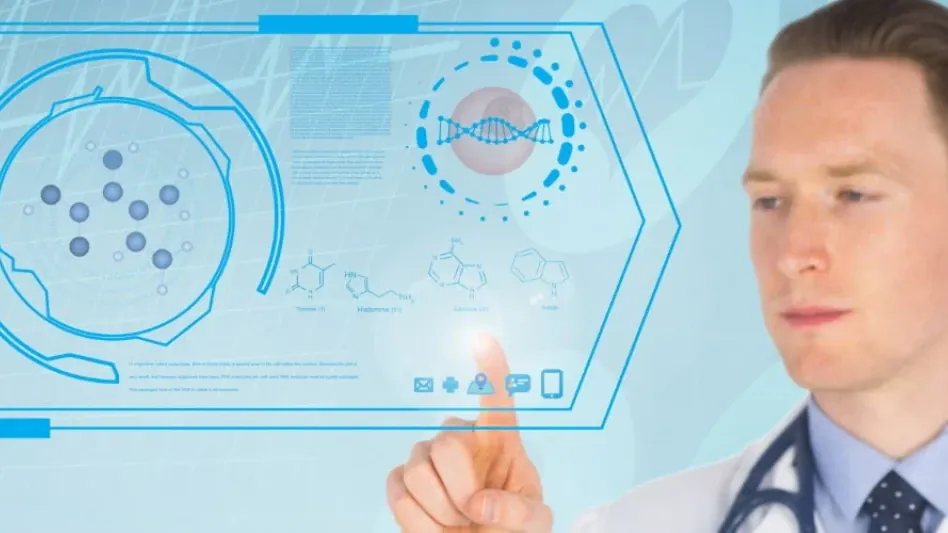Artificial Intelligence (AI) is transforming various sectors, with healthcare being one of the most impacted. From enhancing diagnostic precision to managing chronic illnesses, AI is revolutionizing how healthcare is delivered. The integration of AI into healthcare is influencing every aspect of patient management and care, promising a revolution that aims to provide better outcomes, increased efficiency, and lower costs. This article delves into AI’s multifaceted role in the healthcare industry, exploring its applications, benefits, limitations, and future potential.
The Advent of AI in Healthcare
AI technology is designed to emulate human intelligence, allowing machines to perform tasks that typically require human expertise. AI’s integration in healthcare began with basic applications like data management but quickly expanded to sophisticated uses due to advancements in machine learning and data analytics. These technological leaps have enabled AI to be more widely adopted in clinical settings, leading to significant improvements in patient care. For instance, AI’s ability to process and analyze vast amounts of data has led to more accurate diagnoses, personalized treatment plans, and even the prediction of disease outbreaks.
The healthcare industry, historically resistant to change due to rigorous validation requirements, has embraced AI gradually but steadily. One of the initial areas where AI showed promise was in managing administrative tasks such as scheduling, patient check-ins, and even billing. These early applications demonstrated AI’s potential to reduce the administrative burden on healthcare professionals, thereby freeing them to focus more on patient care. As confidence in AI grew, its applications expanded to more critical areas like clinical diagnostics, treatment planning, and even surgical procedures.
Preventive Care and Diagnostic Advancements
AI’s capabilities in preventive care and diagnostics are among its most notable contributions. In radiology and imaging, AI-powered systems have shown exceptional accuracy and speed in interpreting medical images. For instance, in preventive cancer screenings such as mammograms and lung scans, AI can quickly detect anomalies, such as tumors, thereby reducing the time radiologists spend on manual image analysis. This acceleration in diagnosis not only enables quicker treatment but also increases the chances of successful outcomes by catching diseases in their early stages.
Furthermore, AI excels in risk assessment, enabling healthcare providers to predict potential health issues before they manifest symptoms. For example, AI algorithms can identify early warning signs of left ventricular dysfunction, a condition that could lead to heart failure if not treated promptly. By flagging these risks early, AI empowers healthcare providers to intervene sooner, potentially preventing severe health complications and improving patient outcomes. The predictive capabilities of AI also extend to genetic testing, where algorithms can analyze genetic markers to assess the risk of inherited conditions.
AI’s role in diagnostic advancements isn’t just limited to imaging and risk assessments. It is increasingly being used in pathology to analyze tissue samples and detect abnormalities. Traditional pathology requires a pathologist to manually examine slides under a microscope, a process that can be both time-consuming and prone to human error. AI can scan and analyze these slides at unprecedented speeds, providing highly accurate results that can be cross-verified by human experts. This synergistic approach ensures that the diagnostic process is both fast and reliable, ultimately leading to better patient care.
Management of Chronic Diseases
Managing chronic illnesses is a complex task that requires consistent monitoring and patient adherence to treatment plans. AI systems have proven to be invaluable in facilitating the self-management of chronic conditions like diabetes, asthma, and hypertension. These AI-driven solutions can send medication reminders, suggest therapy adjustments based on real-time data, and connect patients with relevant healthcare resources. By providing such ongoing support, AI helps patients adhere to their treatment regimens more effectively, which in turn leads to improved health outcomes and a better quality of life.
AI also plays a crucial role in tracking patient data over time. Chronic diseases often require continuous monitoring to manage effectively, and AI’s ability to analyze long-term data helps in identifying patterns that may indicate the onset of complications. For example, AI can monitor glucose levels in diabetic patients, analyze the data to detect any unusual trends, and alert healthcare providers for timely intervention. This proactive approach ensures that chronic conditions are managed more efficiently, reducing the risk of severe complications and hospitalizations.
Moreover, the integration of AI into wearable technology has facilitated real-time health monitoring, making it easier for patients and healthcare providers to manage chronic conditions. Devices such as smartwatches and fitness trackers equipped with AI can monitor vital signs, track physical activity, and even predict potential health issues before they become serious concerns. This continuous, real-time monitoring allows for more personalized treatment plans and offers patients the peace of mind that comes with knowing their health is being closely monitored.
Public Health and Predictive Analytics
AI’s role extends beyond individual patient care to public health, where it proves invaluable in predicting and managing disease outbreaks. One of the most compelling examples of this was during the COVID-19 pandemic, where AI algorithms processed vast amounts of data from online searches, social media, and other digital sources to track the spread of the virus. By analyzing these data points, AI could forecast potential outbreak hotspots, allowing for timely public health interventions and resource allocation. This predictive power is crucial in mitigating the spread of infectious diseases, potentially saving countless lives.
Additionally, AI aids in the quick and effective dissemination of crucial health information. During health emergencies, timely and accurate information can make the difference between containment and widespread crisis. AI-driven platforms can analyze emerging health threats and disseminate prevention strategies to large populations in real time. By promoting disease prevention and health education initiatives, AI ensures a faster and more coordinated public response during health crises. This capability is invaluable for public health officials who need to act quickly to contain diseases and inform the public.
AI’s potential in public health isn’t limited to infectious diseases. It is also being applied to long-term health trends, such as predicting the rise in lifestyle-related conditions like obesity and diabetes. By analyzing various data sources, including social determinants of health, AI can forecast trends and identify at-risk populations. This information can then be used to implement targeted public health interventions, such as community health programs and educational campaigns aimed at preventing these conditions and promoting healthier lifestyles.
Enhancing Clinical Efficiency
AI streamlines various administrative and clinical tasks, contributing significantly to the efficiency of healthcare delivery. One of AI’s significant contributions is in automating routine tasks like clinical note-writing and form-filling. These tasks, though essential, are time-consuming and can detract from the time healthcare providers spend with patients. Automation through AI not only saves time but also reduces the burden on healthcare providers, allowing them to focus more on direct patient care. This shift can lead to better patient-provider relationships and, ultimately, better patient outcomes.
Furthermore, AI can delve into vast medical literature and electronic health records to highlight the most relevant information for healthcare providers. This ability ensures that physicians stay updated on the latest medical advancements and can make informed decisions based on the most current data. For example, AI can analyze patient records to identify patterns that may not be immediately apparent to human eyes, thereby aiding in the formulation of more accurate diagnoses and effective treatment plans.
AI tools also offer significant decision support in clinical settings. For instance, AI has shown high accuracy in diagnosing conditions such as colon polyps and colorectal cancer, sometimes even surpassing the diagnostic prowess of skilled endoscopists. These tools provide healthcare professionals with valuable second opinions, ensuring that diagnoses are both accurate and timely. This assistance becomes particularly crucial in high-stakes medical scenarios, where time and accuracy can significantly affect patient outcomes.
Moreover, AI is being integrated into surgical procedures, where it assists in planning and executing complex surgeries. Robotic surgical systems, guided by AI, can perform tasks with precision that surpasses human capabilities. These systems can analyze pre-operative data to plan the best surgical approach, reducing the risk of complications and improving recovery times. While these innovations do not replace the need for skilled surgeons, they enhance surgical outcomes by providing expert assistance and real-time guidance.
Ethical Considerations and Challenges
Despite its myriad benefits, the integration of AI in healthcare comes with challenges and ethical considerations that must be carefully addressed. One significant issue is the potential for bias and discrimination. AI models are trained on large datasets, which often contain inherent biases from existing electronic health records. If these biases are not identified and corrected, AI systems can perpetuate and even exacerbate healthcare disparities. For instance, biased algorithms might offer less accurate diagnoses for specific demographic groups, leading to unequal treatment and systemic discrimination.
Another pressing concern is the risk of AI-provided misinformation. While AI chatbots and virtual assistants can offer helpful medical advice and support, there is always the risk of them providing inaccurate or misleading information. This is particularly concerning in areas like telemedicine, where patients might rely on AI for critical health advice. To ensure the safe and effective deployment of AI, stringent regulations and oversight are crucial. Regulatory bodies need to establish guidelines that ensure AI systems are accurate, reliable, and free from bias.
Moreover, privacy and security are paramount when dealing with sensitive health data. AI systems often require access to vast amounts of personal health information to function effectively. Ensuring that this data is secure and used ethically is essential. Healthcare providers must adhere to strict data protection regulations, and AI systems must be designed with privacy in mind. Cybersecurity measures should be robust to prevent data breaches and misuse of sensitive information.
Future Potential and Human-AI Symbiosis
The future potential for AI in healthcare is vast, filled with possibilities for more personalized and efficient care. AI-driven solutions continue to evolve, promising even more sophisticated applications, such as advanced genomic analysis, personalized medicine, and real-time health monitoring on a global scale. The ongoing advancements in machine learning and AI algorithms will likely lead to breakthroughs in understanding and treating complex diseases.
As healthcare becomes increasingly data-driven, the symbiotic relationship between humans and AI will be crucial. Healthcare professionals and AI systems can work together, each complementing the other’s strengths. While AI can handle vast datasets and provide precise, data-driven insights, human healthcare providers bring empathy, ethical judgment, and nuanced understanding to patient care. This collaboration can enhance decision-making processes, leading to more comprehensive and effective healthcare solutions.
Promoting continuous learning and adaptation will be key to unlocking AI’s full potential in healthcare. As AI technologies advance, healthcare professionals must stay abreast of new developments and understand how to integrate these tools into their practice. Ongoing education and training will ensure healthcare providers are equipped to leverage AI effectively, ultimately benefiting patient outcomes.
The vision for the future of AI in healthcare is one where technology assists but does not replace human clinicians. This approach ensures that while we leverage the power of AI to enhance healthcare delivery, we also retain the critical human elements of care. By striking this balance, we can create a healthcare system that is both technologically advanced and profoundly humane.









